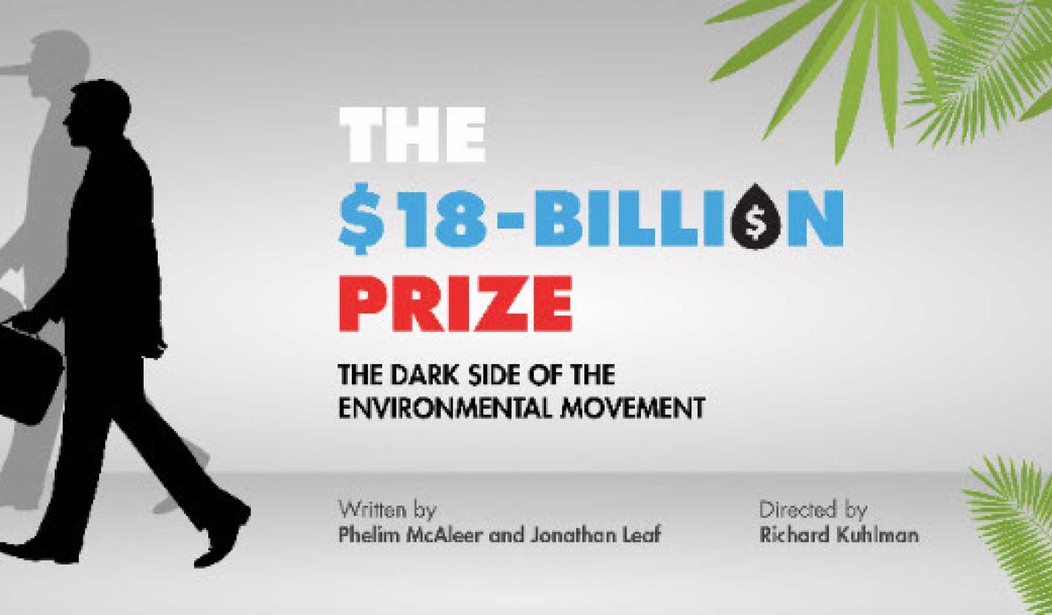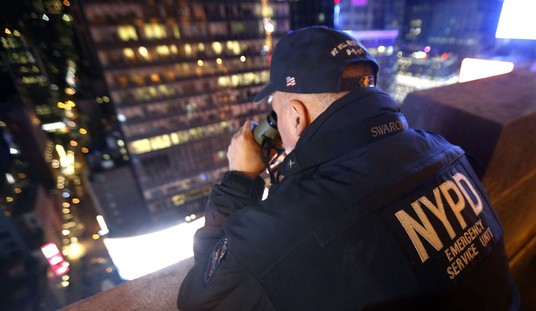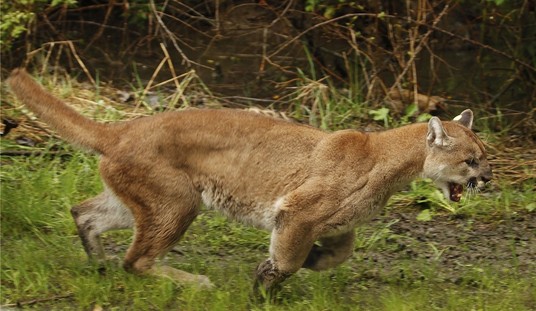Recently I awoke to find that I was being censored in an American city I did not live in and slandered by people I had never met. I was about to learn a great many ugly truths about self-professed “free speech advocates” and a somewhat dubious group within the environmental movement. There are, I believe, important lessons here.
The cause for the attacks on me was a play I had co-written with conservative filmmaker Phelim McAleer entitled The $18 Billion Prize. It had just opened in San Francisco to astonishing audience response. It had also been singled out by the San Francisco Chronicle as a theatrical event of special note. And one of its subjects, Chevron, is the city’s biggest corporation.
Yet, strangely, no reviews were coming out.
A contact out of the blue from a Berkeley undergrad named Daniel Kennard began to explain the mystery. A secret campaign had been organized to prevent reviews or further comment on the play, and a rave review had been spiked by an aging Berkeley leftist who prided himself on his involvement in the school’s Free Speech campaigns of the mid-1960s. The group behind the attacks on the play falsely claimed that I and Phelim had been funded and supported by Chevron. They had used this slander to persuade editors that the play should be marked off as corporate PR and ignored.
Ironically, they had themselves received funding from one of the play’s subjects and were obviously interested parties.
How had I gotten involved in all this?
I have a certain reputation as a playwright and am well-known as an out-of-the-closet conservative, and a year earlier Phelim had reached out to me regarding an idea he had: writing a stage play about a real lawsuit in response to an $18B legal judgment that had been handed down against Chevron. Pitching me on a collaboration, Phelim made what sounded like outlandish charges, and at first I had trouble believing the story he was telling me. It all sounded like right-wing propaganda. At best, it seemed like a gross exaggeration. The essence of his claim was fairly simple though: an American tort lawyer named Steven Donziger, he said, had organized a massive conspiracy against Chevron, and the ruling of an Ecuadorian court against the oil giant, which called for it to repair damage done to the country’s rainforest, had been founded in fraud, conspiracy, and bribery.
While I was disbelieving, I was intrigued. So I headed off to the law library of Manhattan’s federal court building and began researching the case. What I soon came to understand was that the story was more shocking than what Phelim had told me. His accusations against Donziger had already been proven in a U.S. federal district court. That trial had shown that the Ecuadorian judgment was a sham, and the court ruled that Donziger had engaged in racketeering and conspiracy. This decision had been upheld on appeal. Then it was affirmed by the Supreme Court. Moreover, one after another of Donziger’s financial backers, fellow lawyers and professional experts had turned against him and denounced him as a crook, liar, and fraud. Indeed, at various times they had made broad suggestions that other crimes had been committed by Donziger, including forgery, blackmail, and possibly even pandering.
There was an obvious way to tell the story. As much as possible, we would rely on the direct trial testimony from the American court case. In devastating fashion, it revealed that Donziger and the Ecuadorian judge in charge of the case who rendered the original $18 billion judgment against Chevron were liars.
Two things were important to me, however: our play must not fail to present Donziger’s point of view, and it must not be predictable. For that reason, we opened it with a sympathetic scene of Donziger talking about the importance of his cause and the need for redress for the people of Ecuador’s Oriente province. They had been the victims of vast ecological damage caused by oil drilling. Court testimony and Donziger’s own experts eventually concluded that most of this was the fault of Petroecuador, not Chevron. But, whoever was responsible for it, the problem is real — as is the need for a clean-up.
One year later our play was on a stage a few blocks from San Francisco’s Union Square.
Something strange happened on the night of our first performance, though. A heckler showed up, and he began yelling out during the trial scenes, saying that the testimony had been altered. Because the actors were well-trained, they drowned out his voice, and the audience largely ignored him. When the curtain fell, we received thunderous applause. That followed on loud laughs and intent listening to the play’s most serious moments. Response on each of the succeeding nights was just the same.
But no reviews appeared. Then with Daniel Kennard’s phone call we found out why this was. His rave had been killed, and a sometime Berkeley English professor named Barry David Horwitz had threatened to fire him for writing it. It was hard to miss the irony. It wasn’t just that Horwitz reportedly prides himself on his past involvement in the campus’ “Free Speech” movement. It was also that Horwitz was once an English professor, and he was trying to prevent notice for a heralded contemporary playwright. (I tried to contact Horwitz to speak with him about this, but I could not reach him by phone or email.)
The hecklers who were trying to disrupt the play we soon learned were connected to an Oakland-based organization called Amazon Watch. It professes to be an environmental group working for the indigenous people of the rainforest. This is also ironic. After all, the group has taken funding from Donziger, and, as our play made clear, he had worked with the Ecuadorian government to kill hopes of a settlement that might have provided the funds for a clean-up.
That cleanup is something to which Chevron is not legally obligated to contribute. Having been stripped by the Ecuadorian government of its interest in its wells in the country, it was twice given binding contracts absolving it from any future damage claims. Nonetheless, Chevron had made a nine-figure opening offer to contribute to a clean-up. But, as their proposed deal would have called for larger contributions by Ecuador and it would have left Donziger without a huge contingency fee, they had rejected it — without telling the people who were affected.
Thus, Amazon Watch had acted not as an aide to a cleanup but as a stooge for those who had prevented one.
The group’s director of Outreach & Online Strategy Paul Paz y Miño has repeatedly said that I was in the pay of Chevron. When I have asked him for an apology, he has alternately modified his claims and then repeated them. The group’s executive director, Leila Salazar-López, has refused to apologize for the defamation.
Subsequently, I asked her if her group had taken money from other litigators.
She wouldn’t answer this question herself, instead referring me back to Paz y Miño. He then made a non-denial denial, saying that “as a nonprofit, our financials are publicly available.”
Study of available documents raises a great many questions. I looked at records through Guidestar.org. It noted that the group’s board had failed to perform any of its five basic standards for proper assessment of operation. Specifically lacking was documentation of “CEO Oversight” and “Ethics & Transparency.” The group’s “board and senior staff [had not] reviewed the conflict of interest policies and signed disclosure statements.” Nor had there been a “formal written assessment” of the CEO or an analysis of “diversity in thought and leadership.”
The group’s last IRS return that I could find, covering its 2015 fiscal year, was from 2016. The available reports do not break down the sources of the group’s contributions, but they do show that between 2012 and 2015 its funding declined from $1,708,655 to $956,277. Interestingly, this was the same period when Donziger was being exposed, and his own sources of financial support were disappearing. Given that he was one of the group’s backers, this would appear to be worth noting.
Declining funding seems to be placing Amazon Watch onto a path of increasing financial difficulty. Its 2015 IRS return showed that its debt has escalated rapidly, climbing from $249,760 to $652,797.
And while the group claims to be concerned with indigenous persons in the Amazon, only about 4% of its funding went there.
Rather, most of its expenses appear to be for paying its staff’s salaries and expenses within the San Francisco Bay area.
I have no doubt that the group’s members think that they are working to help the condition of the rainforest. I seriously doubt that they are able to see themselves as they really were in the Donziger-Chevron case: flacks and enablers to a lawyer who stood in the way of their stated goals. Whether they are much more than shills for sketchy plaintiffs attorneys now is an interesting, if unknown question.









Join the conversation as a VIP Member